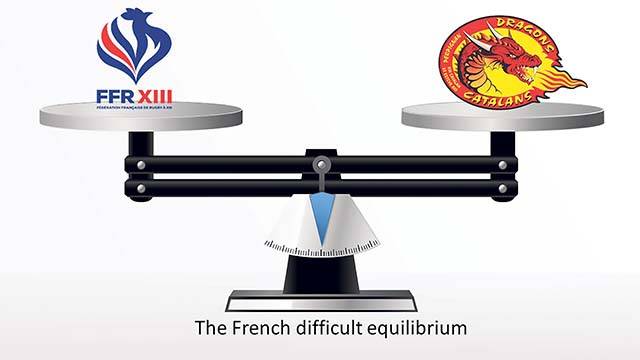 TREIZISTE DIARY
The French Rugby League Federation will soon be under new leadership following the resignation of Luc Lacoste.
AT THE time of writing, the French Rugby League Federation no longer has a chairperson. Luc Lacoste resigned for medical reasons, according to a FFR XIII media statement on June 28th, 2023.
This is not the first time the
TREIZISTE DIARY
The French Rugby League Federation will soon be under new leadership following the resignation of Luc Lacoste.
AT THE time of writing, the French Rugby League Federation no longer has a chairperson. Luc Lacoste resigned for medical reasons, according to a FFR XIII media statement on June 28th, 2023.
This is not the first time the Can new leadership at the French Rugby League use the success of Catalans Dragons to raise the profile of the sport across the whole of France?
 TREIZISTE DIARY
The French Rugby League Federation will soon be under new leadership following the resignation of Luc Lacoste.
AT THE time of writing, the French Rugby League Federation no longer has a chairperson. Luc Lacoste resigned for medical reasons, according to a FFR XIII media statement on June 28th, 2023.
This is not the first time the
TREIZISTE DIARY
The French Rugby League Federation will soon be under new leadership following the resignation of Luc Lacoste.
AT THE time of writing, the French Rugby League Federation no longer has a chairperson. Luc Lacoste resigned for medical reasons, according to a FFR XIII media statement on June 28th, 2023.
This is not the first time the 
